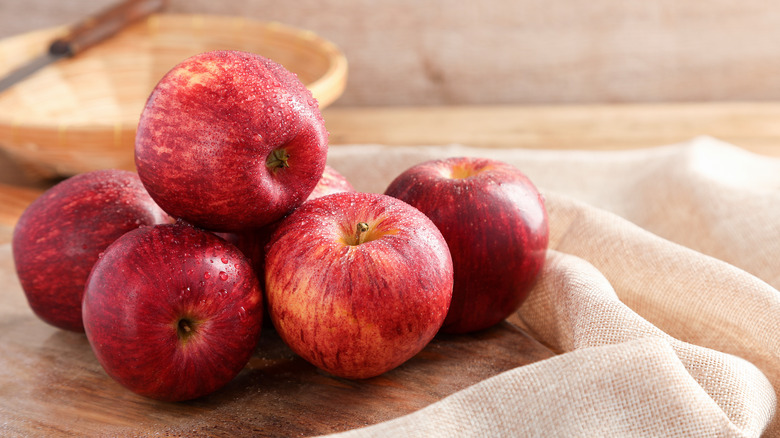
While an apple a day might keep the doctor away, consuming an excessive amount could result in more frequent doctor visits than anticipated. Apples are rich in health benefits, but overindulgence can lead to negative side effects. As noted by Eat This, Not That!, the average person can typically enjoy one to two apples daily without any issues. However, exceeding this amount might cause digestive problems. Apples are full of fiber and natural sugars, and consuming too much of these can lead to bloating, gas, and stomach discomfort.
The high sugar content in apples may also affect blood sugar levels. While you shouldn’t avoid apples due to their natural sugars, consuming too many at once can cause fluctuations in blood sugar. This may not pose a significant problem for generally healthy individuals, but those with certain health conditions may prefer to limit themselves to one apple a day. “For people with poor metabolic health or diabetes, excessive sugar from the fruit may worsen insulin sensitivity or interfere with the effectiveness of diabetes medications,” explained nutrition expert and author Dr. Josh Axe, DNM, CNS.
Health benefits of apples

Although consuming too many apples can lead to health concerns, moderating your intake can provide numerous health benefits. According to Healthline, apples are rich in vitamins and minerals such as vitamin C, potassium, vitamin K, manganese, copper, and vitamin A. They are high in fiber and water, which can help maintain a healthy weight by keeping you full. Apples also contain pectin, a type of fiber that acts as a prebiotic in the gut, supporting good digestive health.
As a delicious and versatile fruit, apples can easily be enjoyed daily. They can be eaten plain, provided you avoid the seeds, which can be toxic in large quantities (via Medical News Today). Apple slices also pair well with savory foods like peanut butter, cheese, and yogurt, offering the additional benefit of some protein and healthy fat with your snack. Just ensure you thoroughly wash the peel to remove any germs it might have picked up at the grocery store before enjoying.




